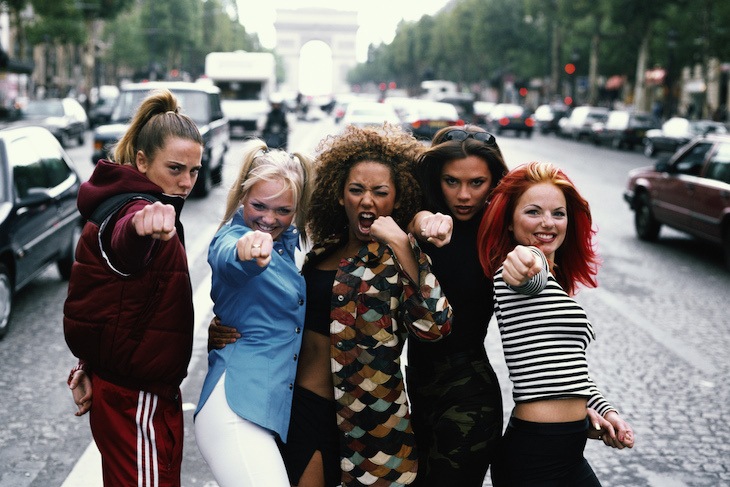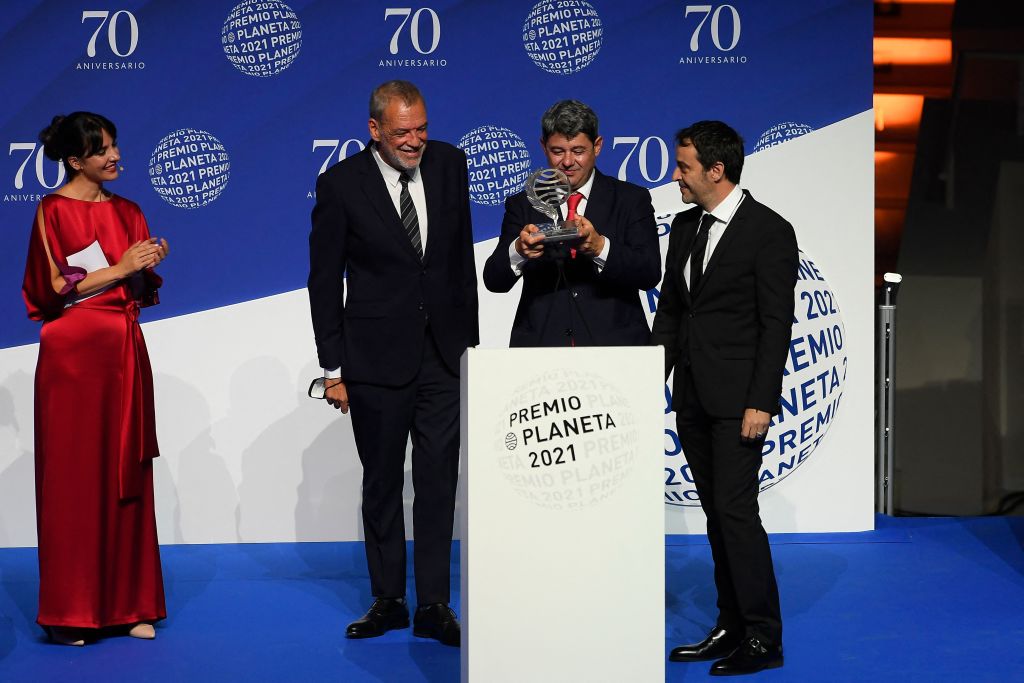The recent news of a Spice Girls reunion will, I suspect, be greeted by some former fans with nostalgic longing and others with an embarrassed cringe. But whether you’re a fan or foe, I think it’s worth remembering that golden decade of Girl Power — the 1990s — when it was bliss to be young and female.
With our present preoccupation with the abuses of male power, we’ve forgotten about Girl Power. It was a fun-fuelled feminism for the mainstream; a materialistic and hedonistic celebration of female assertiveness, ambition and self-reliance. Girl Power was Thatcherism in sexy underwear.
OK, so maybe Girl Power didn’t produce much in the way of great pop music or feminist polemics. But it gave young women the confidence to raise two fingers to female passivity and having to suffer the whims and wrongs of men. Girl Power said, ‘Go ahead, demand what you want’ (‘what you really, really want’, as the Spice Girls put it) and don’t let any man get in your way.
Just compare the bold assertiveness of the Girl Power generation with the poor-me passivity of a group of contemporary women I call Generation Geisha. They are women who claim that their emotional, social, sexual and professional lives have been devoted to the service of men.
The Germaine Greer of Generation Geisha is the bestselling Italian novelist Elena Ferrante. Writing in the Guardian, Ferrante claims that all aspects of a woman’s life have been ‘codified in terms of male needs… We have to be women according to roles and modalities that make men happy’. Consequently, ‘for the sake of peace and quiet, we suffocate ourselves’.
This servitude to men’s sensitivity means that geisha women will endure a date with a man who bores them because they don’t want to hurt his feelings and they will sleep with a man because he might be sensitive to sexual rejection. For Generation Geisha, a man’s feelings always come first because women are made this way by male expectations. So the Generation Geisha women stay silent and keep smiling.
Or they did until very recently. #MeToo and Time’s Up have emboldened these silent women to speak up, or so claims Nigella Lawson. She admits to having been groomed by her upbringing for geisha-hood. ‘Women of my generation were always encouraged to make men feel good about themselves… we were always told we mustn’t make a man feel bad about anything.’
I first heard the voice of Generation Geisha in that now-famous New Yorker short story by Kristen Roupenian called ‘Cat Person’, which went viral in December last year. Its protagonist is Margot, a white, 20-year-old college student who begins dating an older man called Robert. One evening they’re on the brink of having sex, but Margot doesn’t really want to do it with Robert for all sorts of reasons: he’s too fat, he’s a bad kisser and he’s a bit boring. But she worries that he might think she’s ‘spoilt’ and/or ‘capricious’ — so Margot goes through with it.
The reason Roupenian’s short story went viral — which was unheard of for a short story in the New Yorker — is that so many female readers had experienced that same Margot moment. They, too, had opted not to be mean to their very own version of the older fat guy who was a bad kisser, and regretted it the morning after.
Speaking as an older, former bad-kissing fat guy, I can’t but help wonder: where the hell are all these silent, suffocating women who are so sensitive and caring about men’s feelings that they’d rather shag than shun them? Over years of dating and dozens of one-night stands, I’ve never met one of these women; or at least I don’t think I have.
Hmmm. Let me see. I don’t think it was the woman who right in the middle of sex said to me, ‘Please get off me. You’re sweating too much and you smell of Gaviscon.’ And I’m pretty certain it wasn’t the drunk woman who told me, ‘Cosmo, you’re a really bad kisser’, and as she walked away, turned and shouted, ‘Oh, and your ex-wife Julie Burchill is a ten times better writer than you are.’ (Cheers for that one, Debbie.) I could go on and on.
But I’m not complaining. On the contrary, I prefer the honest, upfront kick in the balls from a Girl Power kind of woman than the passive-aggressiveness of today’s Geisha Generation, who just want to suffer in silence and stew in victimhood. A perfect example of this type is a young friend of Ferrante’s, who the author says was so worried about upsetting men that she ‘trained herself not to be too beautiful, too intelligent, too considerate, too independent, too generous, too aggressive, too nice’.
What decade is this woman from — the 1950s? If Ferrante is right about the servile male-centric lives of contemporary women, then we would have a divorce-free world full of Stepford Wives. Whatever happened to female agency and autonomy? For the past two decades we’ve heard constantly about female empowerment, so how is it that these women have ended up feeling so powerless?
The claims of Generation Geisha force us to ask the question: has feminism been a total failure? Ferrante says that ‘after a century of feminism we can’t fully be our selves’. That sounds like an admission of defeat. Maybe we really do need to bring back the Spice Girls after all.
Now listen to Cosmo discuss Generation Geisha in this week’s Spectator Podcast with Ayesha Hazarika, Evening Standard columnist and comedian, and Fraser Nelson, in-house Beyoncé expert:

























